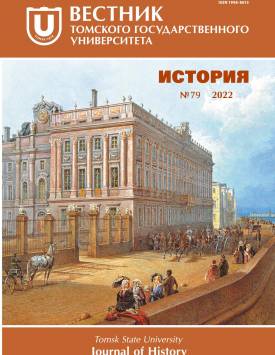Britain, brexit and challenges of the post-imperial identity: Review. Embers of Empire in Brexit Britain. Ed. by Stuart Ward and Astrid Rasch. London, New York: Bloomsbury Publishing, 2019. 190 p.
The review raises questions related to the influence of Britain's imperial past on the results of the June 23, 2016 referendum on Brexit - the country’s withdrawal from the European Union - and the formation of “Global Britain”, a new foreign policy line. The indicated plots are reflected in the collective monograph “Embers of Empire in Brexit Britain” (Ed. by Stuart Ward and Astrid Rasch. Bloomsbury Publishing, L., N.Y., 2019), published in the wake of the referendum. In a solid publication, an international team of authors presented their vision of the causes of Brexit and its impact on the future of London’s relations with the outside world, individual regions within the country (including the overseas territory of Gibraltar) and the search for a new foreign policy identity, still defined through the imperial component. Analyzing this monograph, the author of the article turns to the little-known concept of “Greater Britain” in Russian historiography and the reasons for the actualization and forms of manifestation of the imperial syndrome in the format of the new foreign policy setting “Global Britain”. The text focuses on the relationship between the two concepts, including through the migration factor and the concept of the “British World”. The resuscitation of old ideas and the emergence of new terms in modern scientific discourse in relation to British realities is explained by the complex and contradictory search for an adequate response of the country to the challenges of recent years (Brexit, pandemic, populism, political crises within the country) and the changing configuration of the balance of forces on the world stage in a transitional era. London is trying to find its place in a changed world by trial and error, using both old proven approaches (for example, playing the anti-Russian card) and modeling new alliances for it in priority regions of the world. Unfortunately, there is no special section or any serious mention of Russia in the monograph (but there is a chapter devoted to relations with China). Although Brexit has had an impact on Russian-British relations in the direction of their deterioration. London has been actively playing and continues to play the anti-Russian card to increase the rating of the Conservative Party and individual politicians. At the same time, it is in the imperial plane between Britain and Russia, as a kind of alter ego of each other, that certain patterns can be seen, similar difficulties in parting with empires and building relationships with former territories. The author declares no conflicts of interests.
Keywords
Brexit, post-imperial identity, Greater Britain, Global BritainAuthors
| Name | Organization | |
| Khakhalkina Elena V. | Tomsk State University | ekhakhalkina@mail.ru |
References

Britain, brexit and challenges of the post-imperial identity: Review. Embers of Empire in Brexit Britain. Ed. by Stuart Ward and Astrid Rasch. London, New York: Bloomsbury Publishing, 2019. 190 p. | Tomsk State University Journal of History. 2022. № 79. DOI: 10.17223/19988613/79/25
